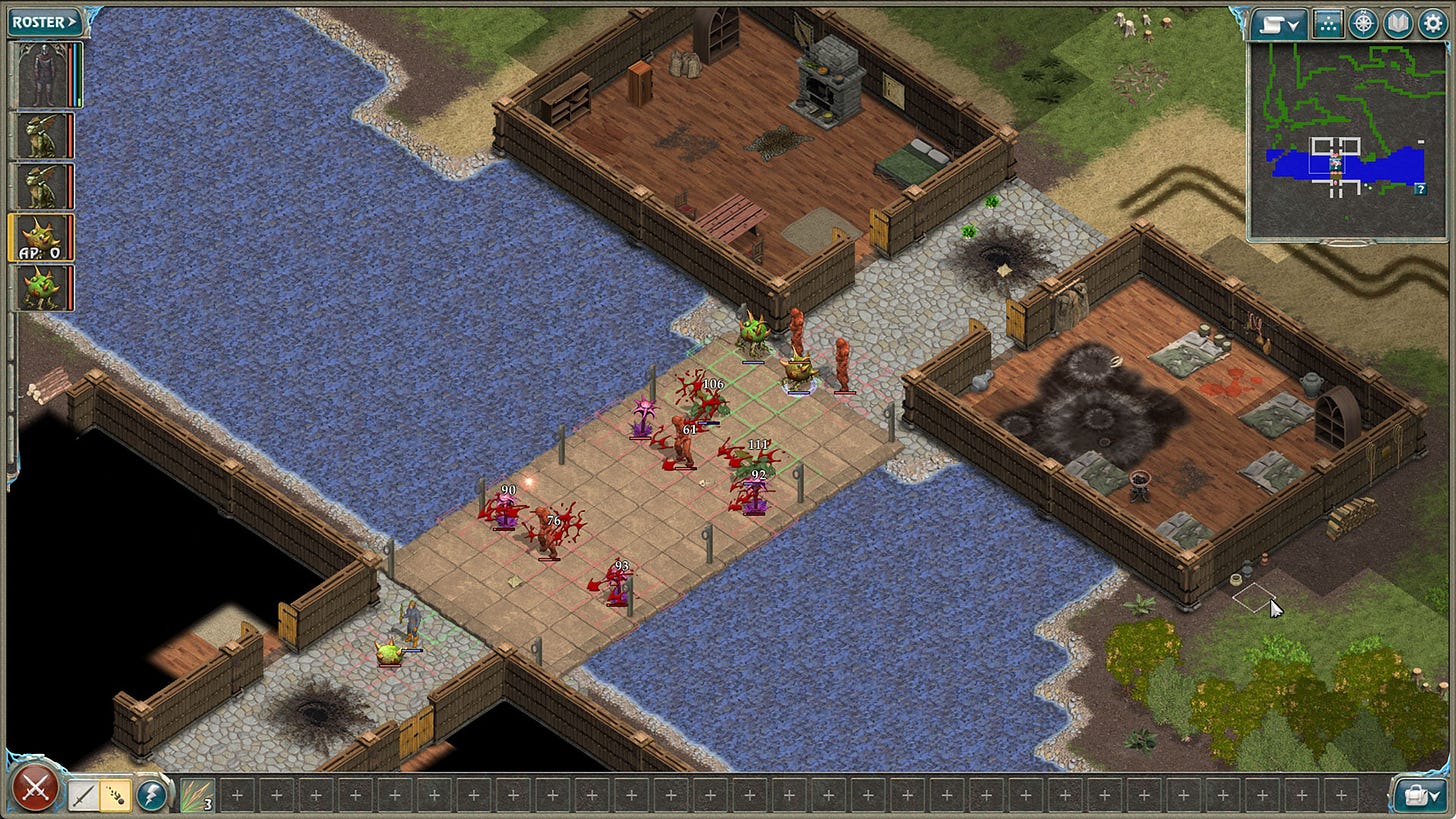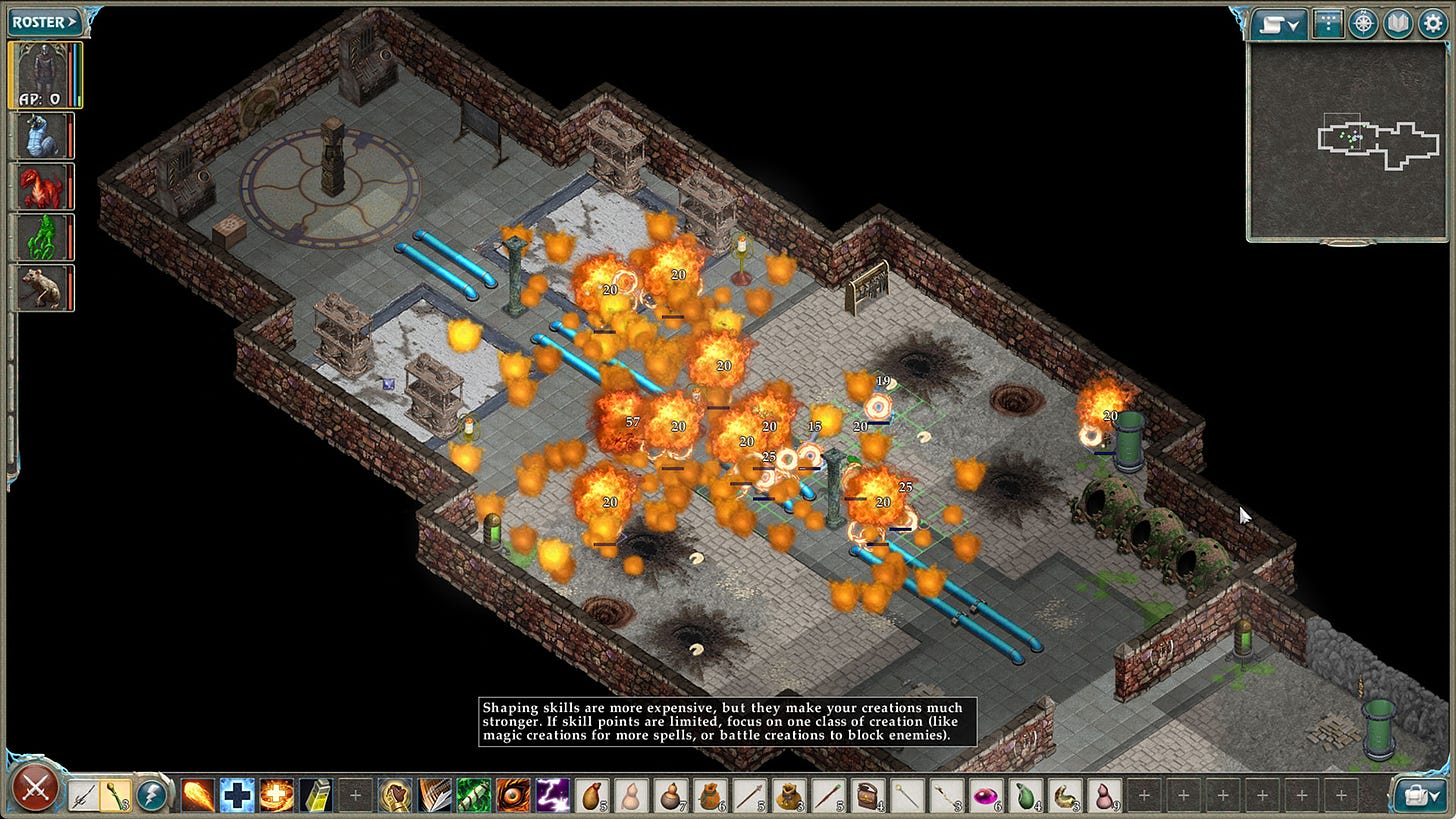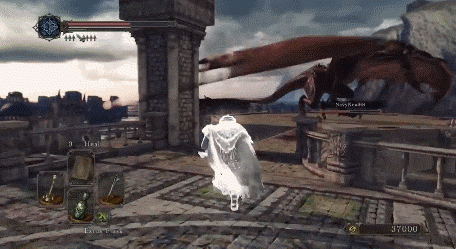Indie Postmortem 2: Geneforge 2 - Infestation. Avoiding Utter Disaster.
Yeah. I grovel. I got product to move. I'm not proud.
This is the second part of the design/marketing/release process for our newest indie RPG, Geneforge 2 - Infestation. The first part is here. TL;DR: We’ve been making indie games for a living for 30 years. Here’s how we manage it.
Phase 16-18 - Actually Doing PR For Real. Also, Shipping a Game.
In January, the game was basically done. The next few months were for setting up stores, fixing the final bugs, and resting up in preparation for the big final push.
After all, while indie developers like to pretend we're a family, it's still a business. We are all fighting each other for a tiny and shrinking amount of potential exposure. Every weekday, 80 games come out on Steam. You are fighting them for press coverage. Ask yourself, "What makes me more worthy of news coverage than them?" You need to be able to answer that question.
We are lucky enough to be able to hire a PR firm. We paid about $4K for a small but decent firm to do waves of coverage. One for announcing the release date, and one for the actual release. What this pays for is this: Your press releases are being sent by someone the editors know. The From field on the emails isn't some anonymous loser, but an established business contact. It's expensive, but, if you hire the right people, it can really be worth it.
When we announced the release date, our PR people sent out a wave of press releases. Several sites gave coverage. We were selling an established game series from an old favorite, and our entering our 30th year in the business gave an interesting PR angle.
Before this PR, we had about 2000 Steam wishlists, mainly from our established fan base. They came in much faster after the coverage. Then, in February, we took part in Steam Next Fest. This gave us a big wishlist boost, and we recommend it. (Though, like everything else in this business, it's getting more crowded and less useful every year.) By the time we reached the middle of March (2 weeks before release), we had about 5000 wishlists.

The Magic of Wishlists, and the Limits
Indie developers tend to fetishize Steam wishlists. It's understandable. Before you actually ship the game, its just about the only tangible evidence that people care about what you are doing.
A wishlist is also a fraction of a sale. When you ship your game or put it on sale, wishlisters get spammed with the news. Some of them buy.
Finally, a few days before your release date, wishlists give your game a chance of appearing on the Popular Upcoming section of the Steam homepage. This is actually a great way to get a ton of exposure to people who have never heard of you.
In our case, our 5000 wishlists got us onto that list about 48 hours before release. In those 48 hours, we got over 3000 more wishlists. That's enough to make real money.
This is, as far as I know, all of the advantages of getting wishlists. They are a good thing.
However, it is possible to get too obsessed with those few days around the Steam release. If you have a really blessed release and show up on the Steam Hot lists, it DOES make more money. But it's a percentage. A really good launch might, I suspect, increase your total earnings by 10%. That's great! That's a lot!
Still, it is just a percentage. A really good release will not make people care about a mediocre game. It won't turn not-fun into fun, and it won't make people who are uninterested into passionate fans. It will not turn a failure into a success.
Release Day
On release day, we shipped the game. It was a very clean release. No technical problems or nasty bugs.
People really liked it. As I write this, we are at Very Positive on Steam. Reviews are extremely kind. It took a long time, but we got very good at doing remasters.
Our PR people bugged everyone who showed interest in us. We got a handful of very nice articles.
In the first 2 weeks, we sold about 3000 copies (and sent a lot to Kickstarter backers). This is about 2.5 times what Queen's Wish 2 did, but about 40% of what Geneforge 1 - Mutagen did. These multipliers held when the game was out a month.
So the increased competition over the last 3 years did hurt our sales. However, this is enough that we should be able to stay in business. So that's nice. Also, the release boosted sales of Geneforge 1 - Mutagen, which is very nice.
On the Wednesday we shipped, 81 new games came out on Steam. This was more than we expected. While we were happy with our sales, they were not enough to push us onto the Popular New Releases Steam list, where the real money gets made.
I counted 5 games that came out that day who got onto the Steam Hot Game list. Which means, out of 81 games that came out that day, at least 5 of them were serious products with real numbers of followers. If you are comforting yourself by thinking, "All of the hordes of games coming out are bad," I assure you that you will be competing with a lot of quality product.
By the way, since we get asked ... Steam is, of course, the vast majority of our sales. Unless you are a huge company or get a big buyout, I can't imagine making a living in PC games without Steam. We also get good sales from our own site (using the Humble Widget) and GOG.com. Our iPad versions make about $1500/month these days, which is a pleasant bonus. Nothing else is significant.
What Happens Next
Cleaning up, really. Releasing patches until we're happy with the stability of the game. Making an iPad port.
Then I empty my brain of all things Geneforge 2. Which is a huge relief. I find holding an entire game in my head to be quite exhausting. The forgetting is like setting down a massive weight.
I take a day off or two. Then I start a new game.
And that is it. If this provides a few useful thoughts about what the online content-creation industry is like, I'm glad I helped. Everything is tighter now, and competition is huge in every space where it's possible to make a dollar. But then again, nobody ever promised that making a living in art is easy.
Good luck to you, and I'm going back to creating. I'm a very lucky person to be able to support my family doing this. If this is your goal too, I wish you great fortune. As long as you don't release a game the same day I do. In that case, well ... I'd better not say what I think.
Spiderweb Software makes fun role-playing games and also has a mailing list and a Twitter and a Facebook if you want to learn when we do something big. Extra thanks to people who actually pay for this Substack. It gets me off my figurative butt and keeps me writing.






“Nothing else is significant,” - Some early morning schadenfreude against the Epic Games Store right there. And why not? No one I know actually buys things from them. Not to endorse the de facto monopoly Steam has as a digital distribution platform, but if you want to compete, you have to be competent. EGS came out so under-cooked, “we now have a shopping cart!” was a major development.
You can give away all the games you want, but if your platform isn’t worth using – heck, if it isn’t good enough to draw people away from where the rest of their games are, why would anyone use it for anything other than your “free samples!” stands? It’s no wonder that, five years later, Rock Paper Shotgun reports it STILL hasn’t made a profit.
Now, I’m sure that extra 18% revenue split would be damned nice, but still, 70% of thousands of sales vs. 82% of a handful is an easy choice.
In any case, I’m glad to hear it sounds like Infestation is doing well – it certainly deserves to.
I always enjoy reading these updates. Keep up the great work!
And yes, I own the games. Even backed them on Kickstarter. One of these days I'll get around to actually playing them....